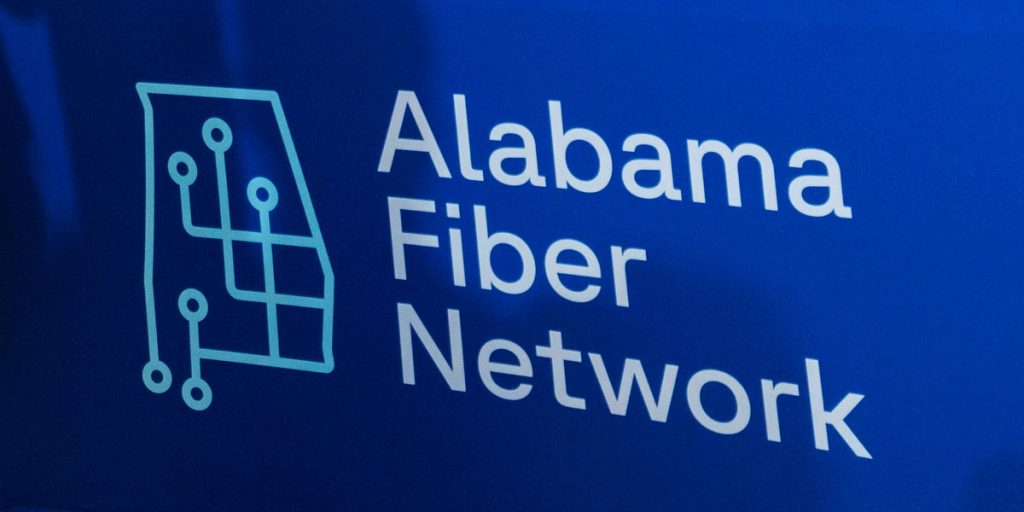For more than 40 years, I have dedicated my life to advancing the economic interests of Alabama. I’ve spent time in the state legislature as a representative of my hometown district and was honored to be selected speaker of the House for Alabama. I served the governor as the director of what is now the Alabama Department of Commerce, which exists to help boost the state’s economy. I currently act as chairman of the Energy Institute of Alabama as well as vice president of business development for PowerSouth Energy. In that time, we have seen Alabama businesses show impressive growth. This year alone, we are at record levels of unemployment.
A lack of high-speed broadband internet access in some of Alabama’s most rural areas persists in holding our state back. It’s a simple fact in today’s interconnected economy that, if one doesn’t have access to the internet, their business is more likely to fail. This lack of reliable internet access keeps businesses from investing in our state due to fears of being stranded on the information superhighway. For companies, particularly, high-tech companies, to invest in rural Alabama, we simply must be able to provide consistent broadband access at sufficient minimum speeds and capacity.
It should also be noted that weak internet connections and speeds can hinder everyday life in general. Every email, text message and digital alert depends on consistent internet in order to keep you and your loved ones updated. Students rely on the internet to receive and send their assignments. All are impacted by poor or nonexistent internet access.
So, I am proud to voice my praise and gratitude for the legislature’s passage of House Bills 400 and 540 and Senate Bill 90. These bills support the expansion of broadband internet systems to the parts of Alabama that need it most. According to the governor, 276,000 Alabamians lived in areas without any internet providers available last year. These new bills will improve situations like these that are simply inexcusable in today’s connected world.
Thanks to state representative Randall Shedd’s (R-Fairview) leadership, HB 400’s passage allows electric providers to install, operate and maintain broadband systems within their easements, the areas of property used by utility companies. These rights enable electric providers, or their affiliated or third-party providers, to more quickly and cost-effectively expand and improve broadband infrastructure to make quality internet access in rural Alabama a reality.
One of the greatest champions in the Alabama legislature for rural broadband access and expansion, Senator Clay Scofield (R-Arab), sponsored SB 90, which makes it easier to secure grants for these projects. It increases the minimum broadband speeds to 25 megabytes per second for downloads and 3 megabytes per second for uploads. It focuses on unserved and rural areas and improves the framework of broadband systems. While HB 400 allows the physical renovation of Alabama’s internet, SB 90 will make sure that these renovations are increased and accelerated.
Rep. Bill Poole (R-Tuscaloosa) sponsored HB 540, also known as the Alabama Incentives Modernization Act. Among other things, it provides significant incentives for the state’s broadband and connectivity efforts by allowing rural fiber projects to be eligible for 15 years of an investment tax credit. This allows recovery of 22.5% of capital investments in rural counties, use of the Growing Alabama economic development site preparation program for fiber projects at industrial parks, inland ports, and intermodal facilities, as well as provisions for broadband projects in federal Opportunity Zones. HB 540 will give businesses another reason to settle in areas that benefit from HB 400 and SB 90’s improvements.
The passing of these bills was greatly influenced by the dedicated members of the Alabama Rural Broadband Coalition. This group includes representatives of multiple industries, ranging from agriculture to business to healthcare to education (K-12 and post-secondary). Influential entities such as the Business Council of Alabama, ALFA, the Energy Institute of Alabama and many others all joined in the effort. Clearly, these bills were approved with a wide range of popular support and I commend these individuals for their steadfastness in pushing for the betterment of our state. All of this will help bring Alabama into a modern economy while also providing internet access and its benefits for all Alabama citizens.
I have spent a great deal of my life making sure businesses in our state have the best chance to succeed. However, for a long time, weak or non-existent internet access was simply accepted as a fact of life for Alabamians living in rural areas. The people of Alabama and the legislature have finally said enough is enough. HB 400, HB 540, and SB 90 will usher in a new era for business in Alabama. Again, I want to thank Gov. Kay Ivey, Sen. Clay Scofield, Rep. Randall Shedd, and Rep. Bill Poole for helping spearhead this great achievement. I also have to recognize the leadership of Sen. Steve Livingston, Sen. Del Marsh, Sen. Greg Reed and Rep. Nathaniel Ledbetter. Please take a moment to call your representative and thank them for their part in passing these bills. I know from personal experience that they appreciate hearing from you.
Seth Hammett is chairman of the Energy Institute of Alabama and vice president of business development for PowerSouth Energy. Hammett spent 32 years in the Alabama House of Representatives, including 12 years as Speaker of the House. Visit https://energyinstituteal.org/ for more information.













